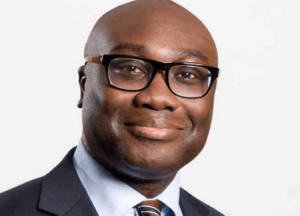Ghana marks third anniversary of Komla Dumor

The Komla Dumor Foundation in partnership with the World Bank Ghana Office, has organised the third anniversary memorial lecture for the former BBC Broadcaster Komla Dumor focusing on the migration from analogue to digital broadcasting.
Mr Edmund Fianko, Manager, Engineering at the National Communications Authority (NCA) leading the discussion emphasised that the digital transmission had a lot of benefit to the consumer.
He explained that: “In digital, the programme production is encoded or compressed, in this process redundant information is taken out so at the receiving end, the images are decoded.
“But in analogue programme, one television station is transmitted on one frequency but because of compression a number of Television stations can be transmitted on one frequency.
“In terms of quality, analogue still shows poor quality images. Digital transmission includes a modulation technique, which addresses quality issues and makes an accommodation for errors. If the errors are too much to be addressed, you will get the feedback: no signal” he said.
Mrs Ursula Owusu-Ekuful, Minister Designate for Communications, said: “The digital dispensation is expected to provide a higher number of radio and television programme channels.
“It will also lead to clearer sound and quality pictures reduce operational cost for broadcaster and also provide more efficient use of the spectrum. The efficiency of spectrum use will also contribute to digital dividend.”
She said a portion of digital terrestrial would be allocated for mobile broadband services.”
Mr Akwasi Agyemang, President of the Ghana Independent Broadcasters Association urged policy makers to deal with challenges that associated with the digital transition to ensure that consumers in the country benefit to the country.
He said: “Besides ownership of television stations being a problem, digital migration policy has not been finalised, and the distribution mechanism of signals is also not known. Digital Terrestrial Television (DTT) Migration Board has had only one meeting.”
He therefore called for fast tracking of the mechanism to deal with these challenges to ensure that Ghanaians benefit for the migration.
Mr Kabral Blay-Amihere, former Chairman of the National Media Commission also identified financing as another major challenge facing the digital migration in addition “the infrastructure we have today cannot support the drive we want to achieve in Ghana with technology importation being a problem”.
Paul Crystal-Djirackor, Chief Executive Officer of Crystal RadioVision Network however noted that in order for Ghana to maximise benefits, planning was key.
“We need to plan, create a frequency bank, and protect the spectrum. We harmonised the standards in region and the world and agreed we will migrate by (DTT),” he said.
Professor Kwame Karikari, former Executive Director of Media Foundation for West Africa, who chaired the forum, said Ghana had been practicing broadcasting without legislation for more than 20 years.
“Inability to clearly formulate policy and enforce policies and legislation is a problem in Ghana. And in this kind of technological stage, such attitude will be detrimental to the country.”
He added that there were bits and pieces of policies and pronouncements captured and “decision makers should set up a body to bring all together, policy and legislation must converge”.
The memorial lecture was also used as platform to discuss the processes required for Ghana to meet the deadline, June 17, 2020 for migrating onto the Very High Frequency (VHF) Band.
Other panelists include; Dr Kwame A. Boakye, a Computer Scientist; Kojo Oppong Nkrumah, Member of Parliament for Ofoase-Ayirebi in the Eastern Region and Broadcast Journalist.
Komla Dumor, a BBC broadcast journalist, passed away on January 18, 2014, in London.
The Komla Dumor Memorial Foundation was set up by the Dumor Family to sustain the legacy of Komla Dumor with aim of promoting excellence in journalism with particular emphasis on broadcast journalism, and initiate programmes for the development of the African youth.
Source: GNA
